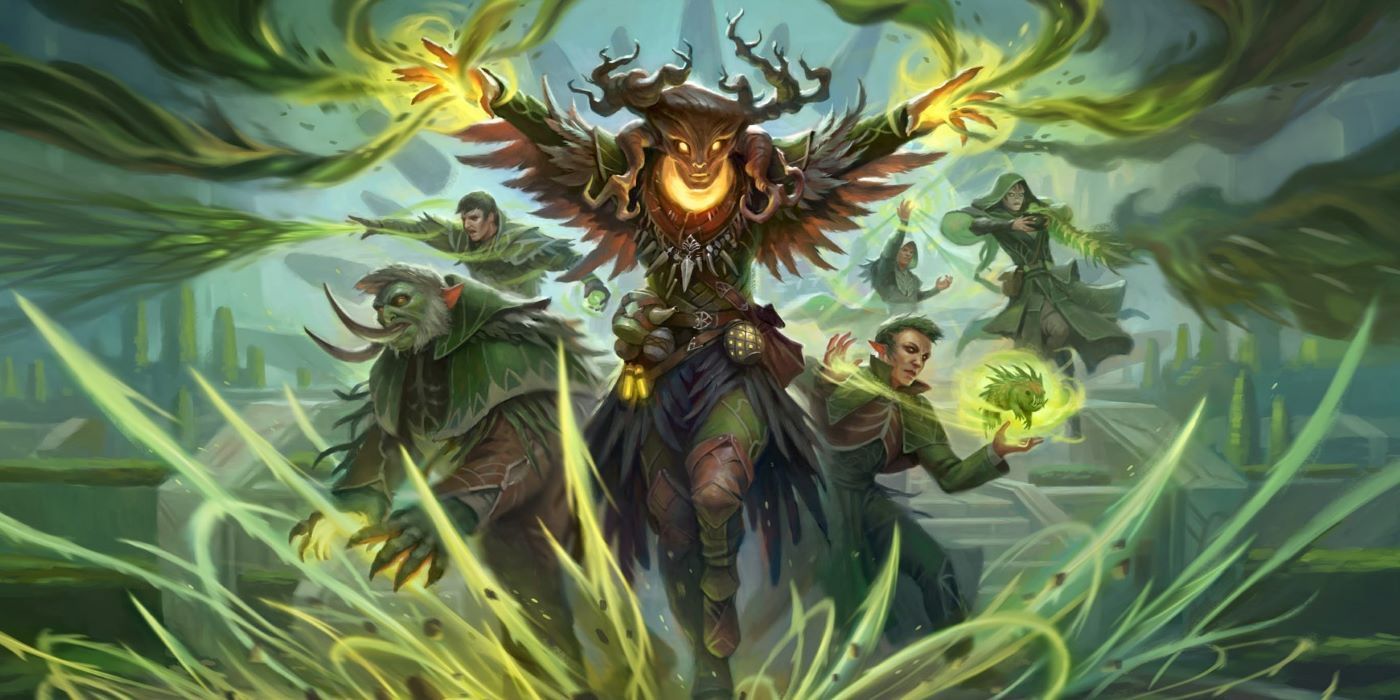There are still a few weeks left to enjoy the era of Kaldheim, but it's already time to start preparing for Magic: The Gathering's next standard legal set release. Strixhaven School of Mages arrives in mid-April and although players can't get their hands on any cards until the pre-release events kick off, they can get a first look at the set's new and returning mechanics now.
Every Magic: The Gathering set features returning evergreen mechanics like Flying and Trample, but most planes have some unique rules that are only relevant on cards from specific sets. This is part of what makes Magic such an exciting game from year to year as the core rules stay in place, but new mechanics are constantly added to shake things up and give the players new tools to work with. Strixhaven is no exceptions and features a short list of very flavorful and interesting set mechanics.
The Strixhaven set will, once again, feature modal double-faced cards, but players who have been around for the last year should already have a very good idea of how those work. The bigger excitement will come in the form of the other mechanics: Lessons, Magecraft, and Ward. Interestingly, Wizards has already confirmed that Ward is going to join the evergreen mechanics list and become a mechanic that returns from set to set going forward...
Lessons
Strixhaven is all about the college experience, so it makes sense that Lessons are a key mechanic. This new keyword offers players the chance to get another card into their hand it will work quite differently in event settings versus at the kitchen table.
"If a spell or ability instructs you to learn, you have three choices. Your first choice is that you can discard a card and then draw a card. Your second choice when learning is to reveal a Lesson card from outside the game and put it into your hand. The third choice you have when learning is to simply do nothing.
If you're dueling under tournament conditions, "outside the game" means your sideboard. If you're just keeping it casual, "outside the game" means your collection. Either way, you can use Lessons to set up an academic toolbox so you're prepared for a variety of situations. You can also include Lessons in your main deck, just like any other sorcery."
Magecraft
Continuing the theme of education young mages, Magecraft is a new mechanic that is going to reward players or casting or copying instant or sorcery spells. Many cards have had a similar effect over the history of Magic, but now there's an official ability word that names this type of triggered ability.
"Magecraft is an ability word that highlights triggered abilities that give you some sort of benefit whenever you cast—or copy—an instant or sorcery spell."
Casting instant and sorcery spells is a key piece of the strategy for most Magic: The Gathering decks, so in theory there is potential for a lot of pay off here. Only a handful of Magecraft spells have been revealed so far, but many seem incredibly powerful and have potential in either limited or constructed settings.
Ward
As mentioned earlier, Ward is a new mechanic that is slated to become evergreen going forward. That means that this is going to become an incredibly important new concept to understand and players should take the time to read the rules text clearly and make sure they have their heads wrapped around the idea of Ward.
Ward is a triggered ability that is designed to make it harder to mess with an opponent's spells or abilities. The cost to mess with those spells and abilities will vary from card to card and be defined immediately after the word Ward on those cards...
"Ward is a triggered ability. Whenever a permanent with ward becomes the target of a spell or ability an opponent controls, counter that spell or ability unless that opponent pays whatever cost is after the word "ward." That cost can be mana, life, or pretty much anything else that can be a cost. It's important to note that any spell or ability controlled by an opponent can be affected by ward. This includes Aura spells, triggered abilities, and anything else that targets a permanent with ward. Spells and abilities that don't target won't cause ward to trigger, though."
Modal Double-Faced Cards
Modal DFCs are back once again and the rules will function just like they did in previous set. The main difference between Modal DFCs and the old school DFCs is that players determine which side of the card they will play when these DFCs enter the battle field and there is no transformation trigger to flip them like back in the first Innistrad era.
"If you're casting one, you choose which face you're casting. The same is true for playing a land face of a modal double-faced card, although you won't find land faces in this set. If you're putting one onto the battlefield without playing to cast it, you get the front face, but only if the front face can actually enter the battlefield. If the front face is an instant or sorcery, it can't be put onto the battlefield this way."
Strixhaven: School of Mages and its colleges are poised to be a very exciting set and should help kick off a big spring and summer for MTG fans. In the coming days, we should learn a ton more about Strixhaven spoilers, mechanics, and more. Start studying early so that you'll be prepared for a new standard era and the upcoming draft format when it drops in mid-April online and in paper for players to explore.
Magic: The Gathering is available now and the Strixhaven: School of Mages set releases on April 15 for MTGO and Arena and in paper on April 23, 2021.

